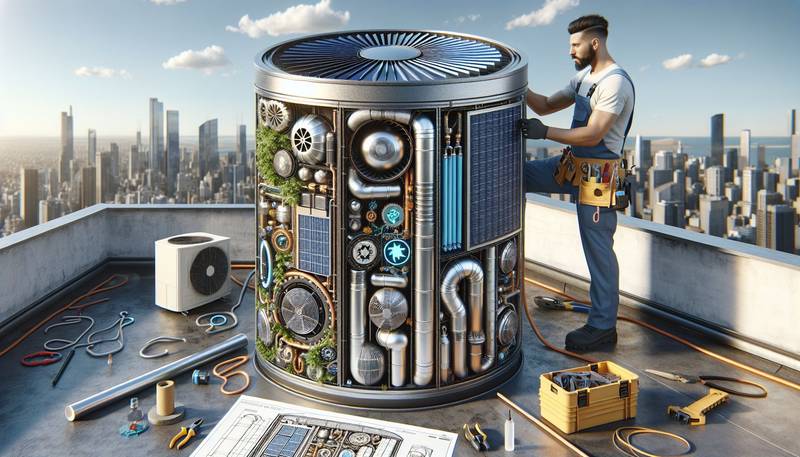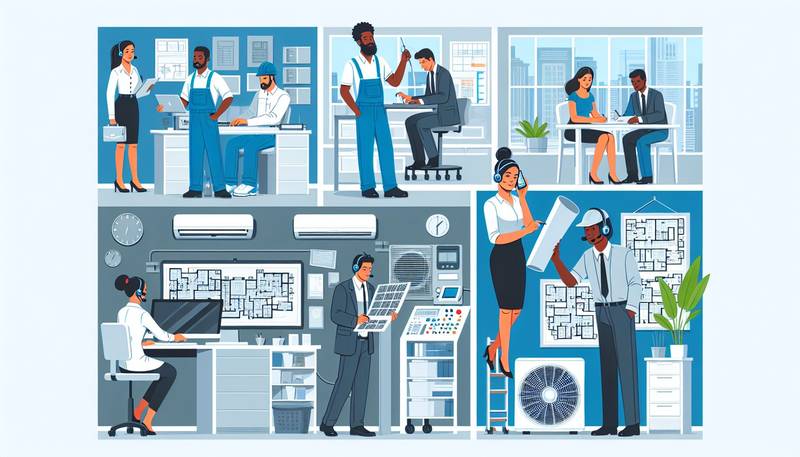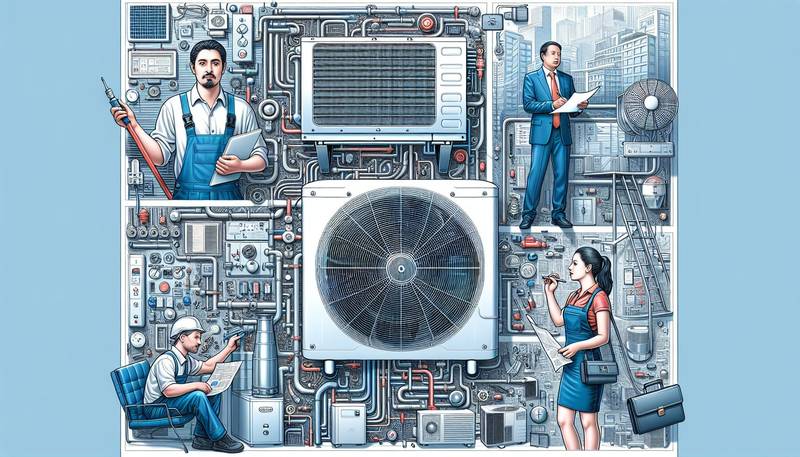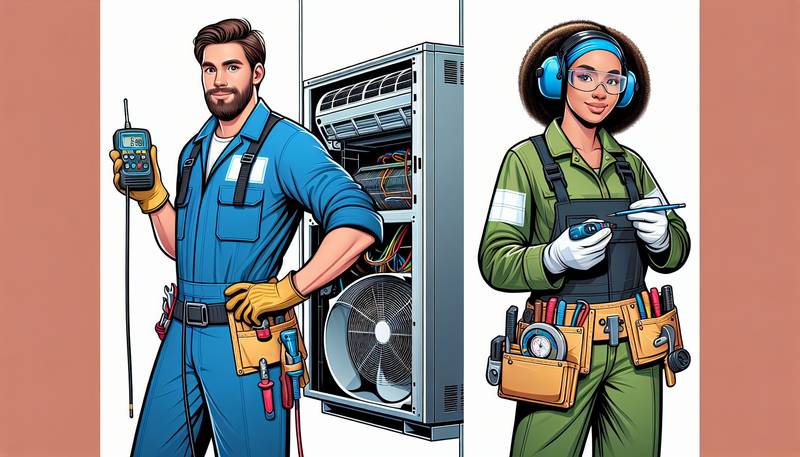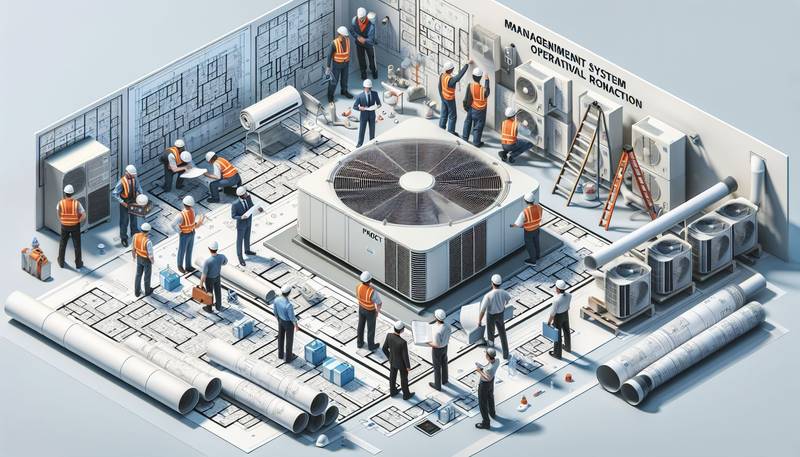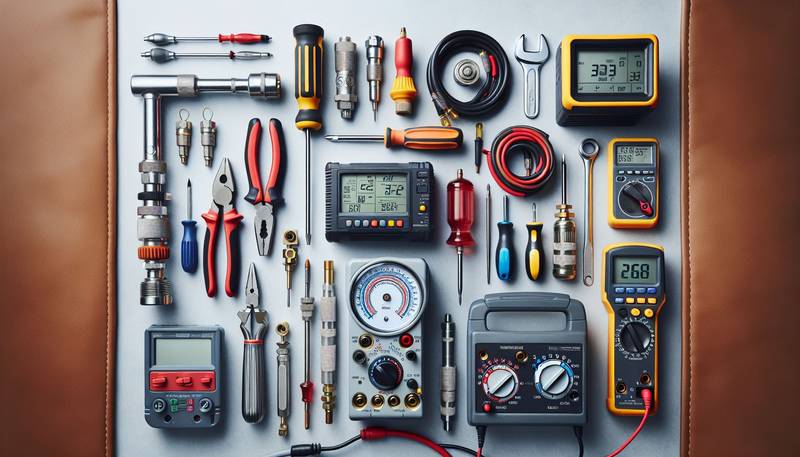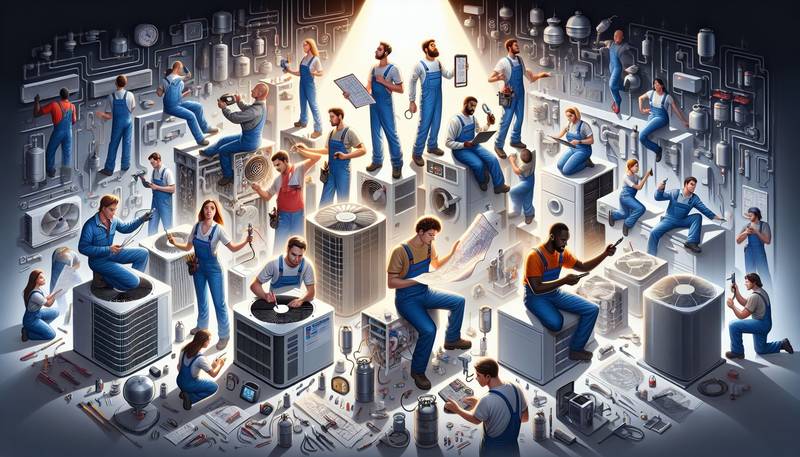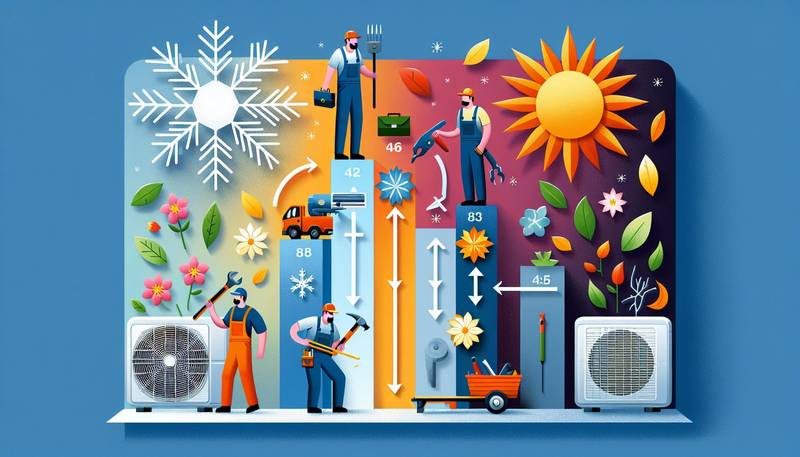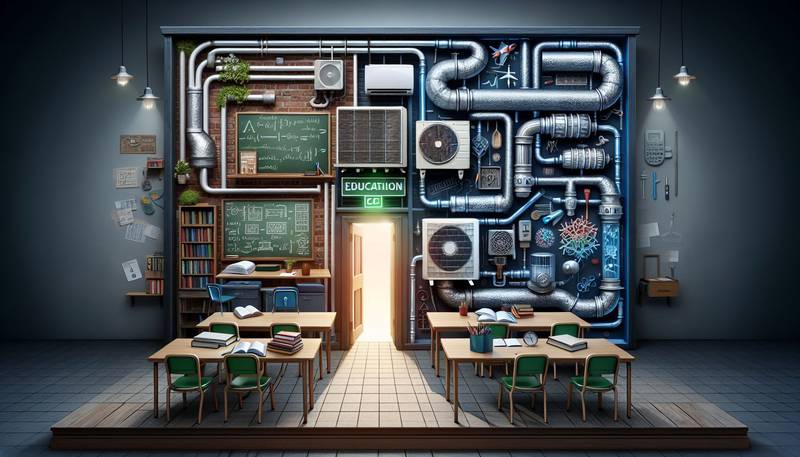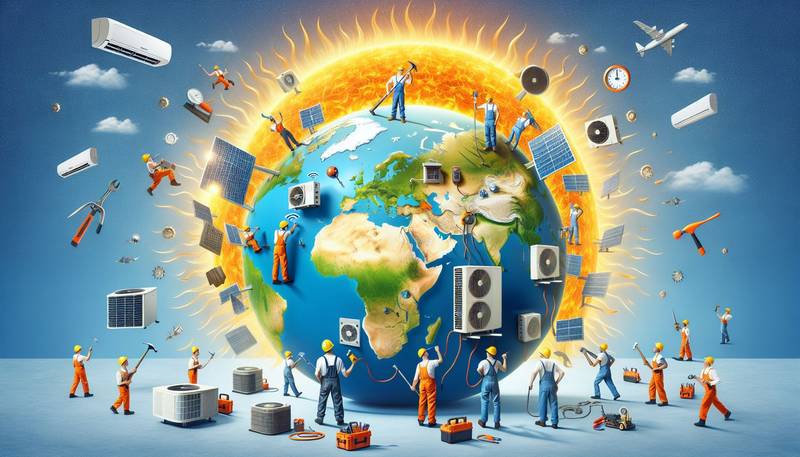Eco-Friendly Cooling: Sustainability in Air Conditioning Jobs
In recent years, there has been a growing focus on sustainability in the air conditioning industry, with the development of eco-friendly cooling solutions that are both energy-efficient and environmentally friendly.
The Impact of Traditional Air Conditioning Systems
Traditional air conditioning systems rely on refrigerants that are potent greenhouse gases, such as chlorofluorocarbons (CFCs) and hydrochlorofluorocarbons (HCFCs). When released into the atmosphere, these refrigerants contribute to ozone depletion and global warming. Additionally, the energy consumption of air conditioning systems can be significant, leading to high electricity bills and increased carbon emissions. The reliance on fossil fuels to power air conditioning units further exacerbates the environmental impact of traditional cooling systems.
Eco-Friendly Cooling Solutions
To address these environmental challenges, the air conditioning industry has been shifting towards more sustainable cooling solutions. Eco-friendly cooling technologies focus on reducing energy consumption, utilizing alternative refrigerants with lower global warming potential, and incorporating renewable energy sources into air conditioning systems. Energy-efficient air conditioning units are designed to minimize electricity usage while providing the same level of cooling comfort as traditional systems. By improving the energy efficiency of air conditioning systems, eco-friendly cooling solutions can help reduce electricity bills for consumers and lower carbon emissions.
Sustainability in Air Conditioning Jobs
As the demand for eco-friendly cooling solutions continues to grow, the role of air conditioning professionals has evolved to incorporate principles of sustainability into their work. Air conditioning jobs now require knowledge of energy-efficient technologies, alternative refrigerants, and renewable energy sources. Professionals in the air conditioning industry are increasingly being trained to install, maintain, and repair eco-friendly cooling systems, ensuring that these technologies operate efficiently and sustainably. By embracing sustainability in their work, air conditioning professionals can help reduce the environmental impact of cooling systems and contribute to a more sustainable future.
The Future of Eco-Friendly Cooling
Looking ahead, the future of air conditioning jobs will likely be shaped by the transition towards eco-friendly cooling solutions. As consumers become more aware of the environmental impact of traditional cooling systems, there will be a greater demand for energy-efficient and sustainable air conditioning options. This shift towards eco-friendly cooling will create opportunities for air conditioning professionals to specialize in green technologies, such as solar-powered air conditioning units and geothermal cooling systems. By staying ahead of industry trends and adopting sustainable practices, air conditioning professionals can position themselves for success in a rapidly evolving market.
In conclusion, sustainability in air conditioning jobs is essential for reducing the environmental impact of cooling systems and mitigating the effects of climate change. By embracing eco-friendly cooling solutions, air conditioning professionals can play a crucial role in creating a more sustainable future for generations to come. As the industry continues to innovate and prioritize sustainability, the demand for skilled professionals in eco-friendly cooling technologies will only continue to grow. By staying informed and adapting to changing market demands, air conditioning professionals can help lead the way towards a greener and more sustainable world.
